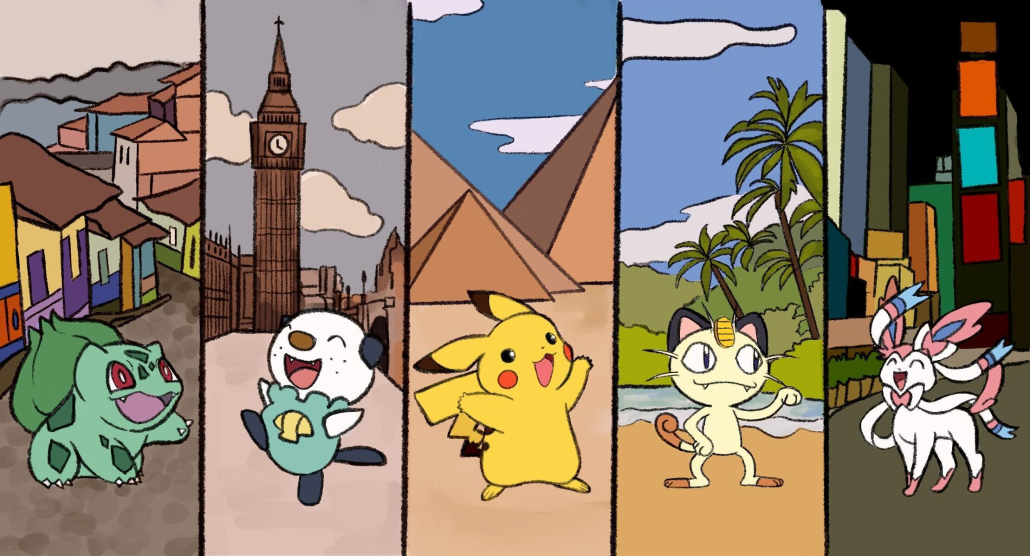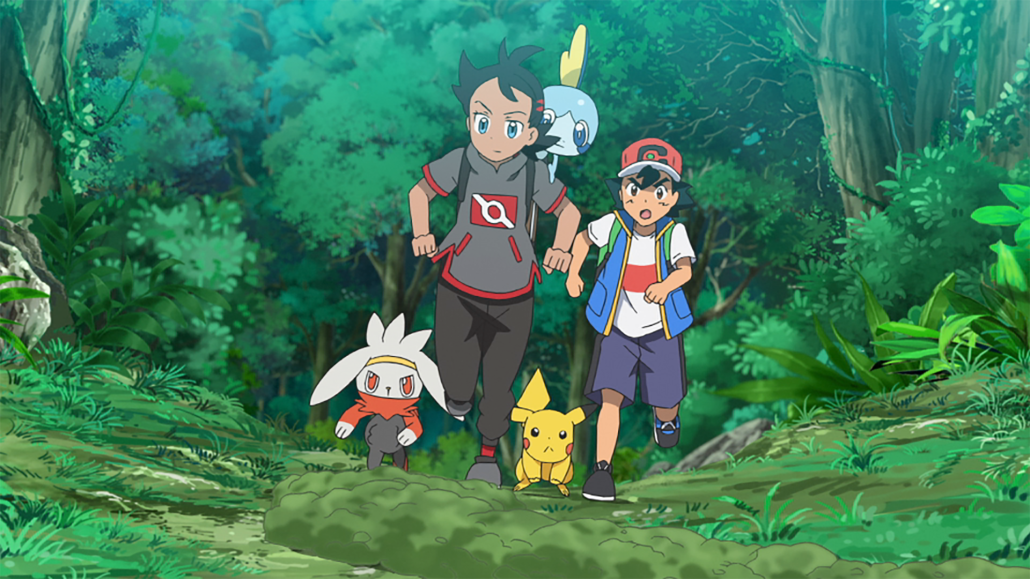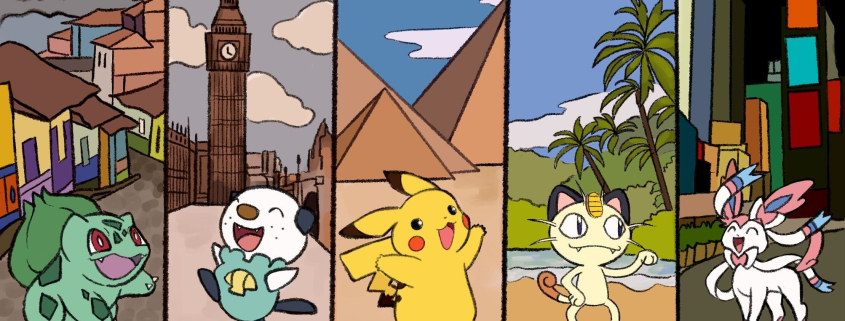Animated: Pokémon captures culture perfectly

I want to start this column off with an apology to the boy in elementary school who asked me nearly every week if he could borrow my Pokémon handbook. I had agreed, wanting to be nice and generous even though that handbook filled with artistically rendered creatures of a Japanese media franchise was, in my mind, the most valuable possession I ever owned at that time.
“Are you done with that book yet?” he’d stand by my desk and ask.
I’d been done with it weeks ago, but being the stingy seven-year-old I was, I didn’t think sharing was caring and had started regretting my decision to be nice. I’d respond that I was still reading it — because I was, just for the eighth time — and he’d look skeptical.
“You’ve been saying that for a long time,” he’d say. I’d shrug and he’d move away, looking disgruntled.
It’s now more than a decade later, and I think I donated that Pokémon handbook to the local library a couple of years back. Still, the fact I remember that I never actually let him borrow that book is ingrained in my mind. I think about that and start questioning my sense of morality. Maybe I’m a bad person. Why didn’t I just let him borrow it?
Looking beyond these internal considerations of myself, I have to note that I’m bringing up that incident because Pokémon, deemed the “most valuable media franchise of all time,” was the heart of Asian American youth like myself and the boy who asked to borrow it. There was no shopping together or eating together back then, as are perhaps the main activities of college students today.
Instead, it was sitting down on the floor with your friends and spreading out your trading cards. I’d ask for Chansey in exchange for my Buneary and Pachirisu, then abruptly change my mind because who cared about HP — or Hit Points — when Buneary and Pachirisu were just so cute? We’d negotiate, and sometimes all of us would leave happy, sometimes not. That was how we communicated, and Pokémon was the foundation of friendship.
After trading cards came one of the animated Nintendo games. Which version it was, I don’t quite remember. What I do remember is that it was fun for a while. My uncle lived in San Francisco at the time, and we would drive the hour to visit him on the weekends. He’d play the game with me, teaching me how to battle gym leaders effectively. My Mandarin was limited, leaving it difficult to talk to my uncle, but gaming needed no explanation.
I stopped playing that game some time after. My uncle moved back to Taiwan, and my frustration at consistently losing a major battle encouraged not persistence, but the decision to give up. Pokémon, though, has come to represent different stages of my childhood.
Although Pokémon appeals to everyone regardless of origin, it is especially significant for many members of the Asian diaspora. Writing for Fanbyte, George Yang uses different Pokémon to speak about their relationship with his identity growing up as a Chinese American, citing Braviary as one of them.

“[Braviary] looks like the most American, most patriotic Pokemon ever. And that’s exactly the point,” Yang writes. “Braviary speaks to my identity as not only Chinese, but also American. As Asian Americans, we often struggle to navigate our dual identities.”
Aside from Pokémon being metaphorical creatures for the divisions and conflicts that may be associated with Asian American identity, the Pokémon Go mobile game spawns a whole new way of celebrating Asian identity on a transnational scale.
My aunt and cousin live in Taiwan, and whenever I visit, they’re always playing Pokémon Go. It doesn’t matter what year it is or how many months have passed since. I watch them play Pokémon Go on their phones and iPads, asking questions and making comments about the Pokémon they’re collecting. My uncle doesn’t have children of his own, but he plays Pokémon Go too so that there’s always a topic of discussion. Occasionally, he and I reminisce about the times that we played the Pokémon Nintendo game in his little San Francisco apartment.
“You were much cuter then,” he argues. Of course I was. Back then, my biggest struggle was whether or not I should let that boy borrow my Pokémon handbook.
In an article for Hyphen Magazine, Allen Mark Arañas observes that mostly Asian Americans in their 20s and 30s have been playing the game. He expresses that Pokémon Go is the “vessel of Asian American nostalgia” and the “symbol of API culture.” I’d agree. There’s just something about the cultural diffusion that has occurred from Japan to Taiwan, to other countries in Asia and all over the world.
Go onto the “Subtle Asian Traits” Facebook group, which connects the global Asian community, and one will see that Pokémon is one of the major points of connection. Pokémon are mechanisms to highlight certain aspects of shared identity and experience. There’s no handbook to being Asian, but Pokémon can certainly give us a way to talk about it.
I really, really should have let him borrow that book.
Valerie Wu is a senior writing about animation and digital arts from a contemporary perspective. Her column “Animated” runs every other Thursday.

